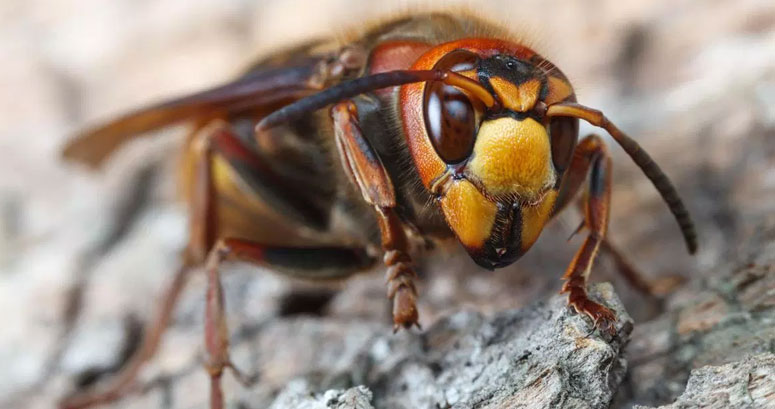London Hornet Control & Hornet’s Nest Removal
Hornets, wasps and bees are all related and all pose similar dangers, yet of the three species the hornet is by far the largest and the most venomous.
Like wasps, they are able to sting multiple times, and their sting is able to induce an allergic reaction that can require medical attention. Their sting is more painful than those of other species, however, and its chance of inducing an allergic reaction is higher; people who may not have a severe reaction to bee-stings can nevertheless still suffer one when stung by a hornet.
Although their hive populations are never as large as those of bees and wasps, they are still just as dangerous to provoke, and certain scents (even apparently harmless perfumes and food flavourings) can cause the entire hive to enter an aggressive state.
The most common hornet that London Insect Control deal with is the common European Hornet, yet the Department for Environment, Food and Rural Affairs believe that Britain may soon face an influx of Asian Hornets, whose sting is even more powerful and who cause multiple fatalities every year in China and Japan.

Hornet Proofing and Nest Removal
Hornet nests will typically reach their peak size in Summer, and although there will be fewer hornets in the air than there would be bees or wasps, the hives themselves are usually larger, and its members can react to perceived threats across considerable distances. While these colonies will not survive the winter months, it is very difficult to live in close proximity to them.
Many people cannot differentiate between wasp, bee and hornet hives, and may not realise that an individual hornet is part of a nest.
Swatting or killing even one hornet can create a scent capable of aggravating their entire swarm, and this scent can sometimes cling to clothes and fabrics, which is potentially dangerous when first encountering a nest.
Hornet infestations are among the most difficult cases that London Insect Control has to deal with, and it requires protective equipment in combination with a powerful insecticidal dust called Bendiocarb to deal with the hornets themselves, while removing the nest itself is another whole procedure.
Hornet’s large size and natural resilience mean that only specialist chemicals can deal with them, and our technicians take considerable care to ensure that their treatment has been lethal, as hornets can often survive weaker sprays and become aggressive later.
Our Expert Hornet Control Technicians
Given recent warnings about Asian Hornet populations, London Insect Control expects an increased level of public concern about hornets and more reports of infestation.
Fortunately, our technicians will give a consultation to realistically inform you about what dangers there might be and what particular species you are dealing with.
While there is a risk that amateurs can mis-identify the nest they are dealing with and aggravate a more dangerous species than they had expected, our technicians are always able to recognise the threat at hand and to take all the necessary precautions.
